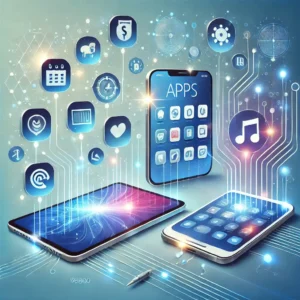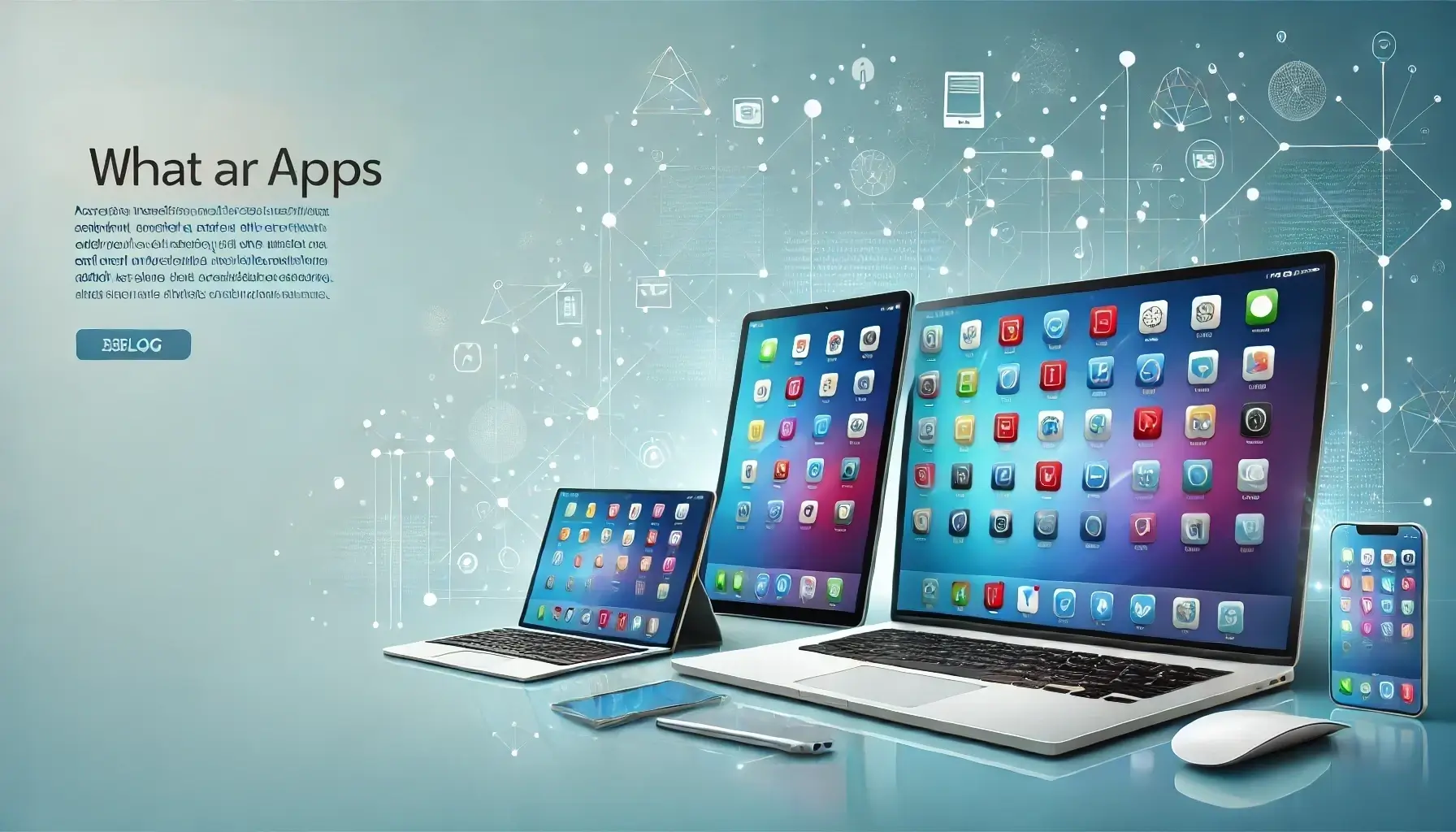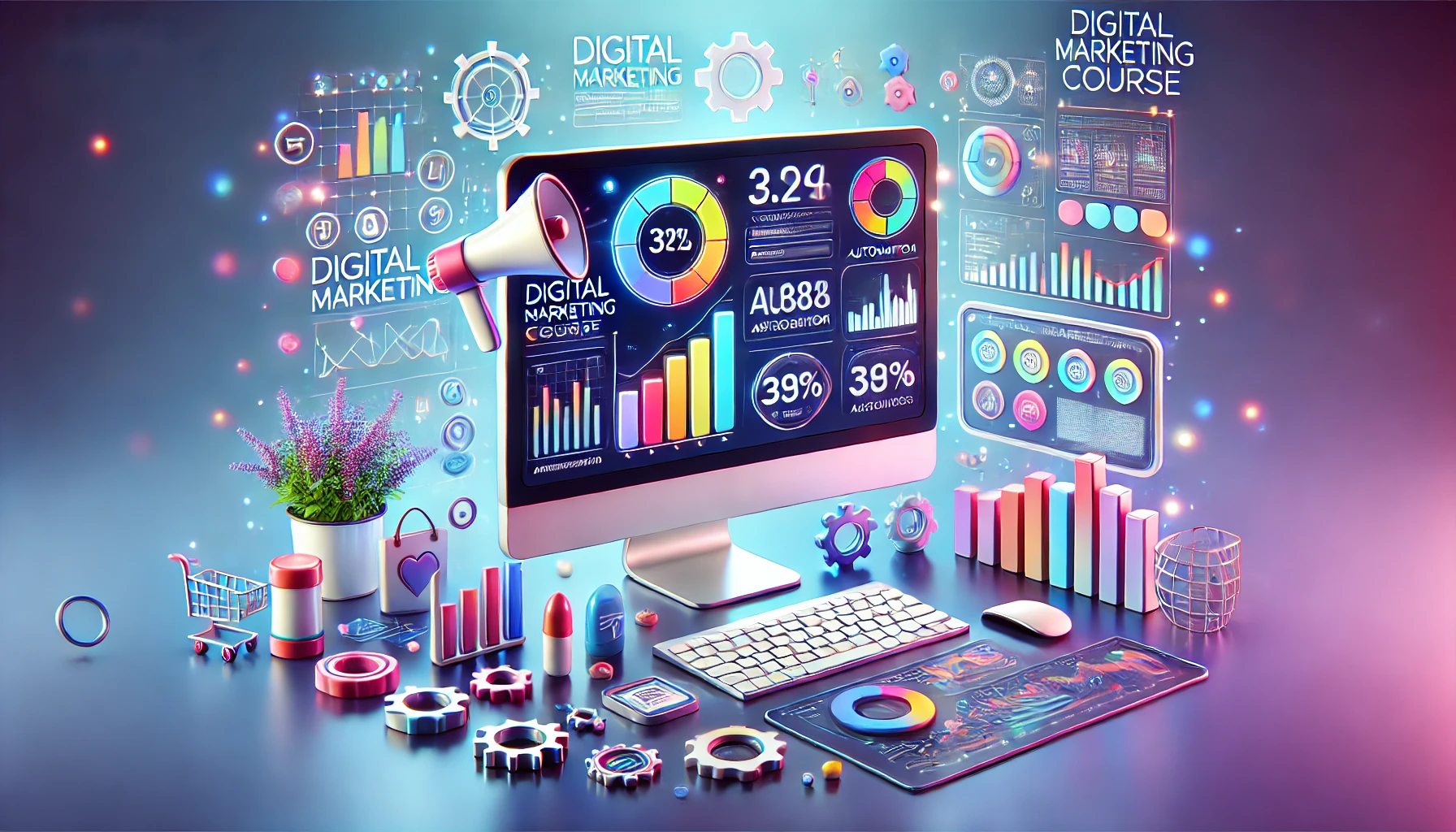Definition of Apps
Apps, or applications, are software programs designed to perform specific functions on mobile devices, desktops, or web browsers. They offer a wide range of functionalities, from productivity tools to entertainment platforms. Apps are created to make life more convenient, whether by helping users stay organized, track fitness goals, or manage their finances.
The Evolution of Apps
The journey of apps began with basic programs that performed singular tasks. Over time, as technology advanced, apps became more sophisticated, integrating features like AI and machine learning. Today, app marketplaces like the Play Store and App Store host millions of apps catering to nearly every need imaginable.
Types of Apps
Mobile Apps vs. Web Apps
- Mobile Apps: These apps are designed for smartphones and tablets, downloaded directly from app marketplaces like the Play Store or App Store. They often function offline and can access device-specific features like cameras or GPS.
- Web Applications: These are used via a web browser and don’t need to be installed on your device. While they rely on an internet connection, web apps are lightweight and versatile.
Categories of Apps
- Productivity: Task managers, calendar tools, and note-taking apps fall under this category. They help users optimize their time and increase efficiency.
- Finance: Apps like Cash App assist with budgeting, sending money, and tracking expenses.
- Health: Step trackers, fitness guides, and meditation apps support users in leading healthier lives.
- Entertainment: From video streaming to gaming, these apps provide endless entertainment options.
A useful app often spans multiple categories, offering versatile solutions for everyday challenges.
The Role of App Stores
App marketplaces like the Play Store and App Store serve as hubs for discovering, downloading, and managing apps.
- Importance of Reviews and Ratings: Before downloading an app, users can assess its credibility by reading reviews and checking ratings.
- Updates and Security: Regular updates from developers ensure that apps remain secure and functional, addressing any bugs or issues.
- Developer Transparency: A trustworthy app often has detailed descriptions and transparent privacy policies.
Popular Categories of Apps and Their Benefits
1. Productivity Apps
Productivity-focused apps assist users in managing tasks efficiently and optimizing their time. Examples include:
- Task Managers: Apps like Todoist help users track and complete daily tasks efficiently.
- Calendar Tools: Google Calendar syncs events across devices, ensuring you never miss an appointment.
- Note-Taking Apps: Evernote allows users to jot down ideas and organize them seamlessly.
By streamlining workflows, productivity apps are an essential part of modern life.
2. Finance and Budgeting Apps
Managing money has never been easier, thanks to finance apps. One notable example is the Cash App, which allows users to:
- Send and receive money instantly.
- Track expenses and manage budgets.
- Invest in stocks or Bitcoin with ease.
Other apps, like Mint, provide insights into spending habits, helping users make informed financial decisions.
3. Health and Fitness Apps
Staying fit and healthy is more achievable with the help of health apps. Popular examples include:
- Step Trackers: Apps like Fitbit encourage users to stay active by tracking daily steps.
- Meditation Guides: Headspace offers guided meditations to reduce stress and improve focus.
- Workout Guides: Apps like Nike Training Club provide tailored workout plans for various fitness levels.
These apps empower users to take control of their physical and mental well-being.
4. Entertainment and Streaming Apps
Entertainment apps bring movies, music, and games to your fingertips.
- Video Streaming: Netflix and YouTube offer endless hours of content for binge-watchers.
- Music Streaming: Spotify provides personalized playlists and access to millions of songs.
- Gaming: Mobile games like Candy Crush and PUBG cater to casual and competitive players alike.
Such apps make entertainment accessible anytime, anywhere, making them indispensable in our digital lives.
Choosing the Right Apps for Your Needs
Evaluating Apps on the Play Store
When browsing the Play Store, it’s important to assess apps thoroughly to ensure they’re trustworthy and meet your expectations.
Check Ratings, Reviews, and Download Stats
- Ratings: Apps with high ratings (4+ stars) generally indicate user satisfaction.
- Reviews: Read user reviews to identify common issues or standout features.
- Download Stats: Popular apps with millions of downloads often have better developer support and reliability.
Understand Permissions and Privacy Policies
Before installing an app, review its permissions to ensure it doesn’t request unnecessary access. For example:
- A useful app for task management should not need access to your camera or microphone.
- Privacy policies provide insights into how your data will be used and stored, so take a moment to review them.
Identifying Your Needs
Choosing the right app begins with understanding what you’re looking for.
Ask the Right Questions
- What problem does this app solve?
- Does it support my individual or career objectives?
- Is it compatible with other tools and systems I already rely on?
Align Features with Your Goals
For instance, if you want to manage finances, an app like Cash App might be ideal for sending and receiving money or tracking expenses. Similarly, productivity seekers might benefit from apps with task prioritization or calendar integration.
Paid vs. Free Apps
Both paid and free apps have their pros and cons, and the best choice depends on your requirements.
Free Apps
- Pros: No upfront cost, easy to try out.
- Cons: May include ads or offer limited features.
Paid Apps
- Pros: Typically ad-free, offer full functionality.
- Cons: Some require ongoing subscriptions, which can add up over time.
Avoid Subscription Traps
- Always read the terms of paid apps carefully.
- Use trial periods to evaluate if the app is worth the cost.
- Cancel subscriptions for apps you no longer use to avoid unnecessary charges.
Tips for Using Apps Safely and Efficiently
Ensuring Data Privacy
Protecting your personal information while using apps is crucial.
Review App Permissions

- Only grant permissions essential to the app’s functionality.
- For example, a photo editing app needs access to your gallery, but it shouldn’t require location data.
Best Practices for Safeguarding Information
- Use strong, unique passwords for app accounts.
- Regularly update apps to benefit from the latest security patches.
Managing App Usage
Apps can be incredibly engaging, but it’s essential to manage your time effectively.
Tools for Tracking Screen Time
- Use built-in tools like Digital Wellbeing on Android to monitor app usage.
- Identify apps that consume excessive time and reassess their necessity.
Set Usage Limits
- Many devices allow you to set app timers to limit daily usage.
- Prioritize apps that enhance productivity, such as a useful app for task management, over purely recreational apps.
Avoiding Common Pitfalls
To get the most out of your apps, steer clear of common mistakes.
Avoid Malware and Phishing Apps
- Download apps only from official marketplaces like the Play Store.
- Be cautious of apps with few reviews or low download counts.
Recognize Red Flags in App Descriptions
- Poor grammar or vague descriptions can indicate a scam app.
- Apps offering “too good to be true” features, like instant large payouts, are often unreliable.
By staying vigilant, you can avoid apps that could compromise your security or waste your time.
Future Trends in Apps
AI and Machine Learning in Apps
Artificial intelligence and machine learning are transforming the way apps operate, making them smarter and more intuitive.
Examples of AI-Powered Apps
- Voice Assistants: Apps like Google Assistant and Amazon Alexa use AI to perform tasks, answer queries, and control smart devices.
- Smart Interfaces: AI-powered apps learn user preferences to offer personalized recommendations, such as Netflix suggesting shows based on your viewing history.
- Enhanced Productivity: AI features in apps like Grammarly provide real-time suggestions to improve writing and communication.
These technologies allow apps to anticipate user needs, streamline workflows, and deliver more engaging experiences.
Integration Across Devices
The ability to sync across multiple devices is becoming a must-have feature for apps.
Creating Seamless Experiences
Apps now work in harmony with smartphones, wearables, and smart home devices, enabling seamless transitions and uninterrupted workflows. For instance:
- Fitness Apps: Apps like Fitbit sync with smartwatches and phones to track health data in real time.
- Smart Home Control: Apps like Google Home connect various smart devices, allowing users to control lights, thermostats, and security systems from a single platform.
This integration ensures that apps remain accessible and functional, regardless of the device being used.
The Rise of Super Apps
Super apps are transforming how we interact with technology by combining multiple functions into a single platform.
What Are Super Apps?
Super apps are all-in-one solutions that provide access to various services without the need for multiple downloads. A prime example is WeChat, which offers messaging, payments, ride-hailing, and more.
Why They’re Gaining Popularity
Super apps simplify daily tasks by eliminating the need to switch between multiple apps. They are particularly useful in regions where mobile-first solutions dominate. Expect to see more apps adopting this model to enhance convenience and functionality.
Top 10 Must-Have Apps in 2025
To stay ahead of the curve, here’s a curated list of the best apps to download in 2025, organized by category.
1. Finance
- Cash App: Perfect for managing money, sending payments, and even investing. Its user-friendly interface makes it a useful app for budgeting and financial transactions.
2. Productivity
- Notion: A flexible tool for organizing projects, taking notes, and collaborating with teams.
- Todoist: A task manager that helps you prioritize and track daily goals.
3. Health and Fitness
- MyFitnessPal: A comprehensive app for tracking meals, exercise, and health metrics.
- Headspace: Ideal for guided meditation and mindfulness exercises.
4. Entertainment
- Spotify: Stream music, podcasts, and audiobooks with personalized recommendations.
- Netflix: Your go-to app for binge-worthy shows and movies.
5. Smart Home
- Google Home: Manage your smart devices, from lights to thermostats, all in one place.
6. Shopping
- Amazon: Shop for nearly anything and track deliveries with ease.
7. Travel
- Google Maps: Plan routes, find local attractions, and explore new destinations.
- Airbnb: Book unique stays and experiences around the globe.
Why These Apps Stand Out

The apps listed above excel in utility, user reviews, and innovation. For instance:
- Cash App: Its integration of peer-to-peer payments and investment options makes it a standout choice for managing finances.
- Spotify: Its curated playlists and AI-driven recommendations ensure a personalized listening experience.
- Notion: Its ability to adapt to various workflows makes it one of the most versatile productivity tools.
Each app has been selected based on its ability to meet modern needs while delivering exceptional value to users.
FAQs About Apps: All Your Questions Answered
Apps have become an essential part of our daily lives, helping us manage tasks, stay entertained, and connect with others. However, with so many options available on the Play Store, it’s natural to have questions about which apps to download and how to use them safely. In this FAQ, we’ll answer common queries about apps, including insights into safety, functionality, and best practices.
What Are the Best Apps to Download on the Play Store?
The Play Store offers millions of apps for various purposes. To help new users or those looking for specific solutions, here are some highly recommended options:
- Productivity: Notion or Evernote for organizing tasks and ideas.
- Finance: Cash App for easy money transfers and expense management.
- Health: MyFitnessPal for tracking fitness and dietary goals.
- Entertainment: Netflix or Spotify for streaming content.
For any useful app, always check reviews and ratings to ensure it aligns with your needs.
How Can I Tell If an App Is Safe?
Safety should always be a top priority when downloading apps. Here are some tips:
- Download from Trusted Sources: Only install apps from official stores like the Play Store.
- Check Permissions: Avoid apps that request unnecessary permissions, such as access to your contacts or camera if it’s not essential.
- Read Reviews: User reviews often highlight potential safety concerns or bugs.
- Developer Information: Established developers with a history of quality apps are usually more reliable.
By following these steps, you can minimize risks and ensure a secure app experience.
What Is the Cash App, and How Does It Work?
The Cash App is a popular financial app that makes managing money simple and convenient.
Key Features
- Send and Receive Money: Instantly transfer funds to friends or family.
- Expense Tracking: Monitor your spending and manage budgets.
- Investments: Buy stocks or Bitcoin directly from the app.
Its intuitive design and robust features make the Cash App a useful app for personal finance.
Can Apps Work Without an Internet Connection?
Yes, some apps are designed to function offline.
Examples of Offline Functionalities
- Navigation: With Google Maps, you can save maps to access them even when offline.
- Entertainment: Netflix lets users download movies and shows for watching without Wi-Fi.
- Productivity: Note-taking apps like Evernote enable offline access to your saved notes.
Apps that function offline are especially beneficial in locations where internet access is restricted or unavailable.
Why Are Some Apps Free While Others Are Paid?
The cost of apps depends on their monetization models.
Free Apps
- Supported by ads or in-app purchases.
- Ideal for users who want basic functionality without upfront costs.
Paid Apps
- Typically ad-free and offer premium features.
- Suitable for users seeking a more enhanced experience.
Some free apps, like Cash App, offer powerful functionalities without requiring payment, making them a great choice for budget-conscious users.
How Often Should I Update My Apps?
Updating your apps regularly is crucial for several reasons:
- Security: Updates often include patches for vulnerabilities.
- New Features: Developers add improvements to enhance usability.
- Bug Fixes: Updates resolve known issues to improve performance.
Make it a habit to check for updates on the Play Store to ensure your apps are running smoothly.
What Steps Should I Take If an App Keeps Crashing?
App crashes can be frustrating, but they’re often fixable.
Troubleshooting Tips
- Reboot Your Device: Restarting your device can often fix minor technical issues.
- Look for Updates: Verify that you have the most recent version of the application installed.
- Clear Cache: Clearing cached data can improve app performance.
- Reinstall the App: Uninstall and reinstall to reset the app’s settings.
If the problem persists, contact the app’s support team for assistance.
Apps have become indispensable tools in modern life, offering solutions for everything from productivity to entertainment. Whether you’re exploring financial tools like Cash App, downloading a useful app for health tracking, or discovering new favorites on the Play Store, apps provide endless possibilities.
Make the most of your app experience by choosing wisely, staying informed about safety, and keeping your apps updated. Share this article with others or comment below with your favorite apps to inspire fellow readers!







